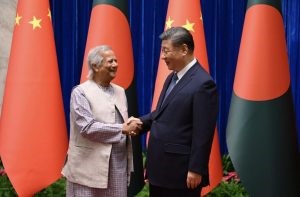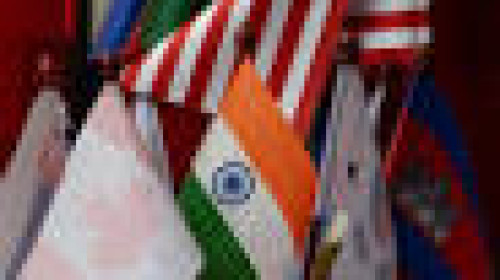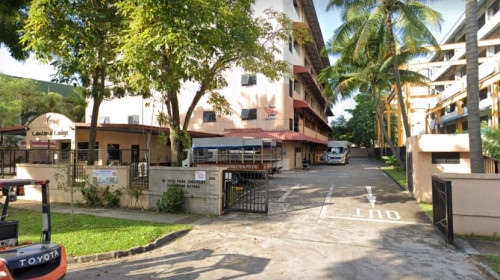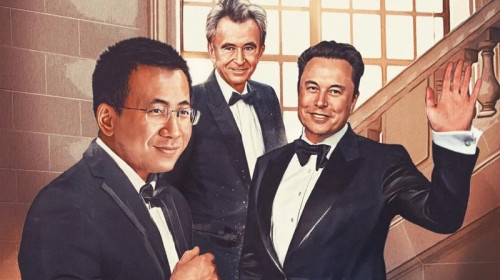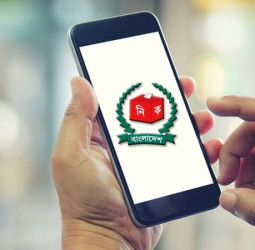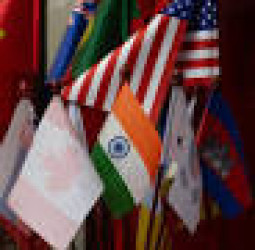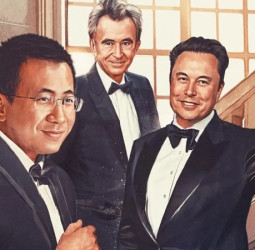The visit of Dr. Muhammad Yunus, the chief adviser of the interim government of Bangladesh, to China from March 26 to 29 is more than a regular diplomatic visit. It represents the beginning of a new chapter in Dhaka-Beijing ties in a geopolitical environment characterized by rapid change, uncertainty, and regional competitiveness.
After years of stable and robust political ties with China and India during Sheikh Hasina’s rule, Dr. Yunus’ four-day official visit coincides with a period of political transformation in Bangladesh. The regional status quo has been visibly disrupted by the fall of the Awami League government, Hasina’s departure, and India’s apparent diplomatic uneasiness, which is visible in its stringent visa policies for people of Bangladesh.
Is Bangladesh attempting to reorient its foreign alliances at this time?
The Strategic Weight of the Visit
On the surface, Yunus’ visit appears to be a continuation – China has long been Bangladesh’s biggest trading partner and an important ally for development. Hasina herself visited China less than a month before she was forced from office.
However, underneath that, there may be an indication of a change in direction or, at the very least, a rebalancing. The fact that Dr. Yunus’ entourage includes advisers on infrastructure, energy, and the Sustainable Development Goals (SDGs) implies that the visit is more than a mere symbolic effort. The interim government is looking to broaden collaboration with China in a variety of fields, including infrastructure, renewable energy, health, and trade and investment.
China seems keen to take advantage of the occasion. Chinese officials view the visit as a foundation for more extensive strategic collaboration rather than just a ceremonial exchange – especially as the two countries mark 50 years of diplomatic ties in 2025.
Why Now?
There are several pressing factors that explain the timing and urgency of the visit.
First is the quickly shifting regional geopolitical landscape. India’s apparent displeasure with the current government – which is demonstrated by restricts on visas and a decline in diplomatic warmth – has left a vacuum. China, which has never been a spectator in South Asian affairs, is filling this void by presenting itself as a reliable partner with no political demands. This strategic patience was demonstrated by Chinese Ambassador Yao Wen’s recent remark that China maintains a consistent foreign policy despite shifts in Bangladesh’s domestic affairs.
Accelerating economic recovery and change during a politically volatile period is the primary objective of Yunus and the interim government. Even though the government is only temporary, this administration is expected to lead Bangladesh through the reconstruction process after the political crisis. Because of this, the nation requires infrastructure development, employment creation, and foreign investment. China is an obvious choice because of its substantial financial resources and the Belt and Road Initiative (BRI) framework.
The Rohingya issue is a persistent political and humanitarian problem for Bangladesh. China’s enduring influence over Myanmar and its past attempts at mediation offer Dhaka a potential channel to revive stalled repatriation efforts. That Yunus has included the Rohingya issue on his agenda in China is a calculated move to leverage Beijing’s regional leverage.
Trade Imbalance: A Sticking Point
The Dhaka-Beijing economic relationship suffers from major asymmetry, though there has been a robust trade volume. Last year, according to OEC data, China exported $22.9 billion worth of goods to Bangladesh, while Bangladesh just exported $677 million in return. Reducing this trade imbalance appears to be one of Yunus’ objectives.
There are signs of progress. The interim government has announced China’s interest in importing Bangladeshi agricultural products such as mangoes, jackfruit, and guava – niche markets that can create rural income and smallholder empowerment.
Furthermore, talks about China’s Longji establishing a solar panel factory in Bangladesh signal industrial cooperation beyond just imports. Besides that specific project, there have been discussions more broadly around the relocation of Chinese manufacturing units to Bangladesh. With rising labor costs and geopolitical tensions like the trade war with the United States affecting China’s own production efforts, Dhaka’s low-cost labor, access to maritime routes, and good access to markets such as the EU offer real promise.
Health Diplomacy: A Quiet Breakthrough
An overlooked yet significant component of Yunus’ visit is health cooperation. India has long been the main destination for Bangladeshi patients seeking better service at affordable costs. However, with India limiting visas, many Bangladeshis in immediate need of medical care have turned to China as an alternative.
In response to that, China has designated three top-tier hospitals in Yunnan Province for Bangladeshi patients. This is a good example of soft power diplomacy, where humanitarian assistance intersects with strategic influence.
Moreover, it is symbolic. Previously, regional health tourism was dominated by India. Now, China is competing in this sector as well. This shows Beijing’s growing readiness to provide comprehensive partnerships – from ports to patients, from bridges to bilateral trust.
Political Neutrality or Strategic Realignment?
Still, the visit should not be interpreted too broadly. Keep in mind that Yunus hosted U.S. Army Pacific deputy commander Lt. Gen. Joel P. Vowell just one day before his flight to China. During the exchange, Bangladesh and the United States reiterated their dedication to strategic communication, interoperability, and military cooperation.
By keeping both major powers – China and the United States – involved, Bangladesh is only hedging its risks as it seeks to protect national interests.
That said, the interim government is establishing the stage for a long-term strategic realignment, even though it is still referred to as “transitional.” This entails expanding collaborations outside a traditionally India-centric framework and granting China greater influence in Bangladesh’s energy, infrastructural, and educational sectors.
Yunus had originally intended to visit India before China, but Dhaka is now moving toward Beijing as a result of New Delhi’s lackluster greeting. Whether intended or not, this trend could have a big impact on South Asian regional politics.
The Road Ahead
The visit will conclude on March 29 after Yunus speaks to Peking University students and takes part in the Boao Forum for Asia, which has as its topic “Asia in a Changing World: Towards a Shared Future.” At the Boao Forum, Yunus will speak about innovation, inclusive globalization, and sustainable development alongside CEOs and world leaders.
Importantly, this engagement highlights Bangladesh’s desire to position itself as a participant in regional and international discussions rather than merely as a recipient of aid or investment.
Yunus’ visit to China is unquestionably an assertion of Bangladesh’s foreign policy agency, even though it does not explicitly represent a shift away from traditional allies like the United States or India. Countries must manage during tumultuous times with practicality rather than sentiment and populism. In this multipolar world, it appears that Yunus is merely looking for opportunities and constructing bridges where they are needed.
One thing is certain as Bangladesh undergoes political change: legacy ties will no longer be the sole defining factor in foreign relations. Instead, Bangladesh’s foreign relationship will be influenced by economic vision, diplomatic ability, and strategic demands. Yunus’ visit to China serves as both an early test and possibly a turning point for this new diplomatic approach.
You Must be Registered Or Logged in To Comment লগ ইন করুন?


